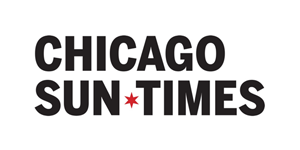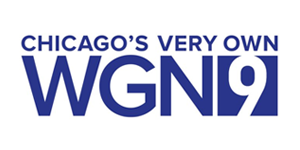
Learn More
Long-Term Projects vs. Short-Term Projects
Long-Term Projects vs. Short-Term Projects – Chicago Workers’ Compensation Lawyers
Chicago employees who have sustained a work injury have the right to file a workers’ compensation claim through their employer. Workers who are injured on the job may suffer short-term effects such as pain and reduced mobility that require them to take time off work. In some cases, the impact of a work injury may be long-term, even lasting a lifetime. A workers’ compensation claim provides injured workers benefits for medical expenses, missing wages, and more.
The experienced Chicago workers’ compensation attorneys at Briskman Briskman & Greenberg can help you recover maximum benefits for your injuries. We will make sure the compensation you get covers all the costs that result from your workplace accident. Unfortunately, certain industries and occupations have a higher likelihood of work injuries and accidents than others. Below, we examine the employment outlook for Illinois over the coming years and the expected impact on workers statewide.
Some Industries and Occupations are More Dangerous Than Others
There were 102,000 nonfatal work injuries and illnesses in Illinois in 2021. The Bureau of Labor Statistics identified the trade, transportation and utilities sector, along with education and health services, as comprising 60 percent of work injuries and illnesses that year. Another study found that the five industries with the highest rates of workplace injuries statewide in 2021 were:
- Transportation and warehousing
- Arts, entertainment, and recreation
- Retail trade
- Agriculture, forestry, fishing, and hunting
- Other services (besides public administration)
Every job has different types of tasks and risks involved, which can result in a variety of work injuries and illnesses. Although industries that involve manual labor or working with heavy machinery inherently tend to be more dangerous, no occupation is perfectly safe. Work injuries can also occur in office jobs. No matter how a workplace injury occurs, workers are entitled to workers’ compensation benefits.
Long-Term Employment Projections in Illinois
Work injuries and illnesses can occur in many different types of workplaces. The Illinois Department of Employment Security (IDES) released long-term employment projections that cover a 10-year period ending in 2030. In 2020, the top five occupations with the highest employment were office and administrative support, transportation and material moving, sales, management, and production.
The IDES projected that from 2020 to 2030, the professional and business services industry will increase management occupation roles by 9.23 percent. Management occupations span a wide range of roles, such as chief executives, general and operations managers, advertising and marketing executives, public relations and sales managers, operations specialists, human resource managers, industrial production managers, and computer and information systems managers.
According to IDES projections, the only occupations expected to see a downturn are office and administration support, with a 2.26 decrease between 2020 and 2030. Common roles in the industry include financial clerks, customer service representatives, hotel desk clerks, postal mail carriers, and secretaries.
Conversely, it is projected that during this period, the retail industry will increase occupation roles by just over 5 percent. Examples of sales occupations include retail sales workers, insurance sales agents, sales engineers, cashiers, travel agents, real estate brokers, and street vendors.
Production occupational roles are expected to see an increase of around 2 percent from 2020 to 2030. Workers in the field include supervisors, assemblers and fabricators, food processing workers, metal workers, printing workers, woodworkers, and plant and system operators, among others.
The biggest increase, of 13.75 percent, over the 10 years is anticipated in transportation and material moving occupations in the trade, transportation, and utilities industry. Jobs in the industry include aircraft cargo handling supervisors, air transportation workers, truck drivers, bus drivers, ambulance drivers, rail transportation workers, material moving workers, crane operators, and package handlers.
Short-Term Employment Projections in Illinois
The IDES released short-term employment projections that cover a two-year period from 2021 to 2023. In 2021, the top five industries with the highest employment rates were education and health services; trade, transportation, and utilities; professional and business services; health care and social assistance; and retail trade.
From 2021 to 2023, the transportation industry was projected to increase occupation roles by 7.3 percent. In 2021, the healthcare and social assistance industry in Illinois recorded 12,045 work injuries.
One of the largest employment changes was noted in food preparation and serving occupations, which had a 23.75 percent increase during the two years. The industry consists of a wide range of occupational roles, including chefs, restaurant cooks, bartenders, dishwashers, waitstaff, supervisors, and fast-food counter workers.
Work Injuries in Office Environments
While office work and desk jobs are typically not viewed as hazardous, workers in the professional and business services industry, sales occupations, education and health services, and office administration can still be prone to work injuries. With the projected increases in occupations across these industries both in the short term and long term, it is important to understand your rights in case you suffer a work injury or illness.
Overexertion is one of the most common work injuries in office environments. In 2020, overexertion was the second leading type of injury that required days away from work. It accounted for 22 percent of all work injuries in which employees had to take time off.
Repetitive strain injuries like carpal tunnel syndrome and tendonitis are often reported among employees who work at computers for long hours. Injured workers may require medication and physical therapy to regain their range of motion.
Sitting all day creates the possibility of muscle strains, back pain, neck pain, and other issues. Reading in poor lighting or looking at a dim computer screen can lead to eye strains. Lifting heavy loads like stacks of files or office equipment can cause back, neck, and shoulder injuries.
Slip and fall accidents are among the most common types of on-the-job injuries across all occupations. Many workplaces have tripping hazards such as loose extension cords, slippery flooring, uneven carpet, poor lighting, or items blocking walkways. You can also fall while using a stepstool to reach something on a high shelf.
Retail workers face similar hazards when restocking shelves or tripping over objects on a store floor. The retail trade recorded 7,202 work injuries in 2021.
The resulting injuries can be as minor as bruises and scrapes to as severe as fractures and head injuries. You may also hurt your arm or wrist while trying to break your fall. Surgery and rehabilitation may be required in serious cases, meaning time away from work to recover.
A work injury does not have to arise from a workplace accident to qualify for workers’ compensation benefits. Even injuries that develop gradually over time, like repetitive strain injuries, can force you to miss workdays and rack up medical bills. A workers’ compensation claim helps you receive financial support to cover those costs.
Work Injuries in Non-Office Jobs
The Illinois transportation industry is expected to see significant growth through 2030, according to IDES data. With that in mind, it is important to acknowledge the work injury risks the industry presents. In 2021, transportation and warehousing occupations saw 11,844 work injuries statewide.
Truck drivers, bus drivers, ambulance drivers, and others who drive for a living face the risk of being involved in on-the-job motor vehicle accidents. Collisions can cause an array of injuries, from broken bones to traumatic brain injuries.
Injured workers may have to take significant time off work due to hospitalization and a lengthy recovery period. In 2021, air transportation workers nationwide had a rate of 6.5 work injuries per 100 workers. Around 3.7 cases out of 100 required time away from work.
Production occupational roles face numerous on-the-job hazards. For example, food processing workers, metal workers, and plant operators are in contact with specialized equipment every day. In 2021, wood product manufacturing workers had a rate of 6.1 work injuries per 100 workers. Some of the most frequent safety violations cited by the Occupational Safety and Health Administration that year were related to machinery guarding, powered industrial trucks, eye and face protection, failure to lockout, hazard communication, and fall protection.
A lack of proper workplace safety measures can cause severe injuries. Workers can also develop health conditions from inhaling toxic fumes or not receiving adequate safety equipment to cover their eyes and nose. While some injuries can heal with proper medical treatment, others can have a lasting impact. Machinery-related injuries, for example, can result in amputations that change a person’s quality of life. When pursuing a workers’ compensation claim, your benefits should cover all the losses you sustain because of a work injury or illness.
Among short-term projections, food preparation, and serving occupations have seen the most growth from 2021 to 2023. Workers in the restaurant industry can suffer cuts and scrapes as well as burns while handling knives and appliances in a kitchen. Waitstaff, meanwhile, can slip and fall on spills or suffer from scalds while serving hot food and drinks to customers.
In the hospitality industry, hotel workers may experience back pain due to bending and lifting heavy objects. Standing in the same place for long periods can also lead to chronic conditions that require medical treatment. Housekeeping staff who handle harsh cleaning products may suffer allergic reactions and complications that affect their ability to perform their job duties.
Personal Injury Claims in Chicago
If you have been injured while working in an occupation that presents day-to-day hazards, it is useful to consult an experienced Chicago workers’ compensation lawyer. In some cases, an injured worker may have a personal injury claim in addition to a workers’ compensation claim.
A lawyer can help you determine whether a negligent third party contributed to your work injuries. At Briskman Briskman & Greenberg, we have the understanding and skills required to handle both personal injury and workers’ compensation cases.
For example, crane operators working at construction sites may get injured due to faulty equipment. Package handlers face the risk of suffering a slip and fall accident while making deliveries, which can require extensive rehabilitation.
In the former case, an injured construction worker may have a valid personal injury claim against a manufacturer who sold defective machinery, which in turn caused the work injury. In the second situation, the injured employee may have a premises liability claim against a building owner who failed to keep their floors free of slipping hazards.
Key Steps to Take After a Chicago Workplace Accident
If you have been injured or suffered an illness at work, there are several steps you should take immediately to protect your rights. There are strict deadlines involved with Illinois workers’ compensation cases, so it is crucial to act fast. Briskman Briskman & Greenberg recommends you take the following steps:
- Tell your employer about the work injury or illness. Employees have 45 days in which to report their workplace accident to their employer for a valid workers’ compensation claim, but it is best to do so right away. Taking too long to report the injury can increase the likelihood of the insurance company denying the claim and arguing that your injury is not work-related. While you can notify your employer about your workplace accident orally, having the facts in writing is also important. Make a written report of your injury or illness and keep a copy of it for your records. Do not continue working, even if your injury seems minor.
- Fill out an illness or injury claim form. Complete a claim form even if you have already reported the workplace accident to your employer orally or in writing. Be thorough and specific about the incident, including details such as the location and time. Submit the form as soon as possible to ensure there is no delay in the workers’ compensation process. Retain a copy of it, as well as any other documents that can support your claim.
- Seek medical treatment right away. Call 911 if you have a medical emergency. Otherwise, get medical attention as soon as possible. Delays in seeing a doctor after a work injury can affect how successful your workers’ compensation claim is. Many employers have a designated medical provider to handle work injuries. However, Illinois law permits workers to see a doctor of their choice. Tell your doctor about your work injury or illness and follow their medical advice. Ask for an “off work slip” if the doctor says you can’t return to work due to your injury.
- Consult a qualified Illinois workers’ compensation lawyer. Many law firms, including Briskman Briskman & Greenberg, offer free legal consultations. During this initial consultation, you can ask questions about filing a workers’ compensation claim. The attorney can also help you figure out whether your work injury involved a third party that may be liable for personal injury. Talking to an experience workers’ compensation lawyer ensures your rights are protected and that you are not cheated out of the benefits you deserve.
Statute of Limitations for Illinois Workers’ Compensation Claims
Workers who wish to receive fair compensation for their medical costs lost wages, and other work injury-related expenses must file their claim on time according to Illinois’ statute of limitations. Failing to meet this deadline can mean you lose your right to recover compensation.
The statute of limitations for workers’ compensation claims is three years from the date a work injury occurred or two years from the last date a medical bill or disability compensation was paid. The statute of limitations that applies is based on whichever gives you more time to file your claim.
How Can a Chicago Workers’ Compensation Lawyer Help?
Injured workers deserve to receive full and fair workers’ compensation benefits after a work injury or illness. Unfortunately, what should be a straightforward process can get complicated when employers or insurance companies refuse to pay you the benefits you are owed. This can occur across all occupations and industries.
A Chicago workers’ compensation lawyer can help you navigate the Illinois laws that apply to your case. They can also provide close guidance throughout the legal process of filing a claim. You do not have to prove fault when pursuing benefits. However, you do have to show that your injury was work-related.
Without a skilled attorney in your corner, you run the risk of not being paid the full amount of compensation you are owed. Even though the pain and hardship that results from a workplace accident are very real to you, it does not stop insurance companies from questioning the severity of your injuries. They may insist that your injury or illness is unrelated to work or that you waited too long to see a doctor. There are many reasons your workers’ compensation claim may be denied.
At Briskman Briskman & Greenberg, we have experience dealing with the common pitfalls that arise from such claims. We are dedicated to helping Chicago workers obtain just compensation. Seeking quality legal representation is the most reliable way to obtain the vital benefits you are owed after a work injury or illness. We are ready to help you, no matter what industry or occupation you work in.
Contact Briskman Briskman & Greenberg for a Free Consultation
If you are having difficulties obtaining the workers’ compensation benefits you deserve, discuss your situation with an experienced Chicago workers’ compensation attorney. Briskman Briskman & Greenberg is available to answer all your questions and help you understand your options for recovering compensation for your medical bills, lost wages, and more. Contact us today for a free initial consultation.




SEEN ON:







